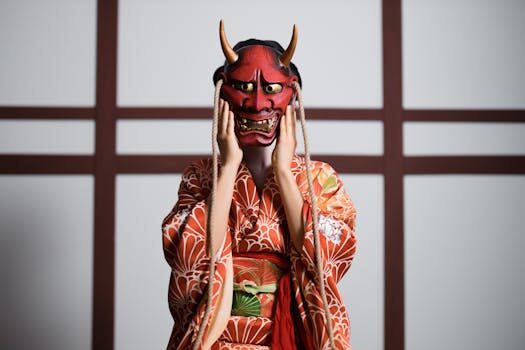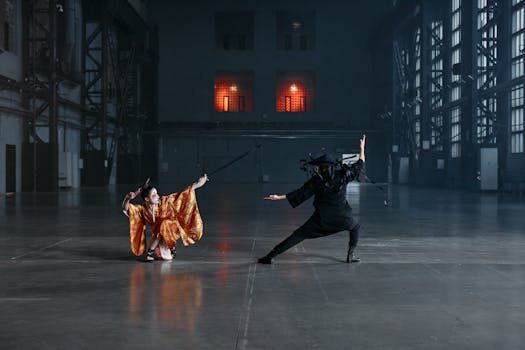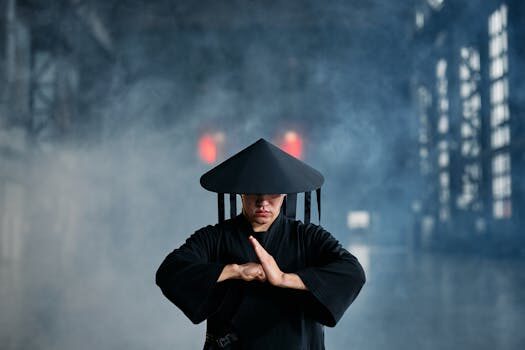Samurai: name meaning, popularity and info

The term samurai holds a significant place in Japanese history and culture, representing a warrior class that was both revered and respected. This article delves into the meaning of the name "Samurai," its historical context, popularity, and notable figures associated with it.
What is the meaning of samurai?
The word samurai comes from the Japanese root "saburau," which translates to "to serve." Thus, the name "Samurai" essentially means "one who serves." This reflects the underlying philosophy and duty of the samurai class, which was to serve their lords with loyalty and honor.
Beyond its literal meaning, the name embodies the core values of the samurai, including loyalty, honor, and courage. These traits were deeply embedded in the samurai's way of life, often referred to as Bushido, or "the way of the warrior." Bushido emphasized virtues such as bravery, self-discipline, and respect for others, which were essential in a samurai's service.
Moreover, the significance of the name has transcended time, remaining a powerful symbol in modern culture. Today, the term "samurai" evokes images of skilled warriors, historical battles, and cinematic portrayals of heroism. Individuals adopt this name to pay homage to its rich heritage and the principles it stands for.
What is the history of the samurai class?
The samurai class emerged during the late 12th century in Japan, initially serving the imperial court. Their role evolved significantly throughout the centuries, particularly during the Heian and Sengoku periods. During the Heian period, many samurai were court officials, but as warfare intensified, their military skills became invaluable.

By the end of the Sengoku period, the samurai had solidified their status as a hereditary warrior class. They played critical roles in the unification of Japan under figures such as Oda Nobunaga and Tokugawa Ieyasu. The Edo period further established the samurai's societal position, leading to a time of relative peace and stability.
However, the Meiji Restoration in the late 1800s marked the decline of the samurai class, culminating in its formal abolition. Despite this, the legacy of the samurai endures, influencing modern Japanese culture, art, and even martial arts. Their history reflects a complex tale of loyalty, honor, and the evolution of Japanese society.
How popular is the name samurai?
The popularity of the name Samurai has fluctuated over the years. While it was traditionally associated with males and used as a title of respect, its usage as a given name has declined in contemporary times. Still, many parents choose it for their children, inspired by the noble qualities linked to the samurai.
In recent years, there has been a resurgence of interest in traditional names, including samurai names for boys and girls. This trend reflects a broader appreciation for cultural heritage and the desire to instill values associated with the samurai ethos in the next generation.
While relatively uncommon as a first name, the name "Samurai" captures the imagination and may often be found in fictional works, gaming, and anime, where samurai characters are celebrated for their bravery and honor.

What are some notable samurai names for boys?
When considering samurai names for boys, several notable figures come to mind. These names carry historical significance and represent the traits valued in samurai culture. Some examples include:
- Minamoto no Yoshitsune: A legendary general known for his strategic genius.
- Miyamoto Musashi: Renowned for his exceptional swordsmanship and philosophical teachings.
- Oda Nobunaga: A powerful warlord who played a key role in the unification of Japan.
These names are not only rich in history but also reflect the strength and honor associated with the samurai tradition. They continue to inspire parents today, reminding them of the values they wish to impart to their children.
What are some notable samurai names for girls?
While samurai culture is often associated with male warriors, there are also notable samurai names for girls that deserve recognition. Many names inspired by female warriors or influential figures in history serve as a testament to the courage of women in samurai culture. Examples include:
- Tomoe Gozen: A famous female samurai and warrior known for her bravery.
- Jinmen no Tsubame: Renowned for her martial skills and loyalty.
- Shizuka Gozen: A celebrated figure for her beauty and tragic love story.
The inclusion of these names highlights the contributions of women in samurai history, showcasing their strength and resilience in a male-dominated society.
What is the influence of samurai in popular culture?
The influence of samurai extends far beyond Japan, impacting global popular culture. They are frequently depicted in films, literature, and video games, often embodying the archetype of the noble warrior. Iconic movies such as "Seven Samurai" by Akira Kurosawa have immortalized the samurai ethos, showcasing themes of honor, loyalty, and sacrifice.

Moreover, samurai culture has inspired various art forms, including manga and anime, where characters often exhibit traits reminiscent of historical warriors. This fascination has led to a renewed interest in samurai history and culture, further enriching the narrative surrounding them in modern storytelling.
Additionally, the principles of Bushido have influenced various martial arts disciplines, promoting values such as respect, discipline, and perseverance. These teachings continue to resonate with practitioners today, bridging the gap between ancient traditions and contemporary practices.
Related Questions About Samurai
What is a popular samurai name?
Some of the popular samurai names include Minamoto no Yoshitsune and Miyamoto Musashi, both of whom are celebrated for their skills in battle and their contributions to Japanese history. These names have transcended time and remain significant in cultural discussions surrounding the samurai.
What does the name samurai mean?
The name "samurai" translates to "one who serves," highlighting the core duty of these warriors to be loyal to their lords. It encapsulates the essence of their role in Japanese society and the values they upheld, such as honor and loyalty.
What is another name for a samurai?
Another term commonly associated with samurai is ronin, which refers to samurai without a lord or master. This term reflects the circumstances of a warrior who has lost their feudal lord, often leading to a life of wandering and seeking purpose.

What is the full meaning of the word samurai?
The full meaning of the word "samurai" encompasses not just the idea of serving but also the embodiment of Bushido. It represents a way of life that values honor, loyalty, and courage, making it a significant cultural identity in Japan.